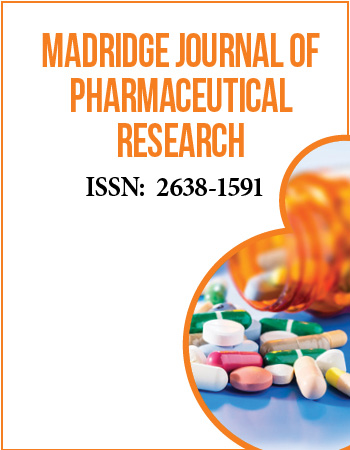International Conference on Medicinal and Pharmaceutical Chemistry
December 5-7, 2016 | Dubai, UAE
Key requirements for successful transnational drug discovery projects
Fraunhofer Institute for Molecular Biology & Applied Ecology – ScreeningPort, Germany
We are now witnessing a resurgence in drug discovery the use of cell-based assays including phenotypic assays where the underlying target/s are unknown. Concomitantly, significant advances in these assays are also being made, for example using human induced pluripotent stem (iPS) cell-derived cells that better recapitulate normal human biology compared to transformed cell lines and non-human primary cells.
A typical small molecule drug discovery project aims to identify chemical starting points that modify the functions of genes, cells, or biochemical pathways ultimately leading to new therapeutics. Screening using miniaturised microtiter plate formats remains the most widely utilised methodology for identifying novel chemical starting points that are capable of modulating target function in a meaningful, biologically relevant manner. The initial steps in small molecule drug discovery include the selection of a target, development of an assay to monitor its activity, and its screening against a compound library. Subsequently, the Primary Hits are optimised using multiple criteria including structure activity relationships, selectivity, physicochemical properties and liability that could result in a Lead compound series and eventually a clinical Candidate molecule for evaluation in human subjects and this compound is expected to possess appropriate physico-chemical properties, in-vitro off target liabilities, in-vitro toxicity and in-vitro ADME and safety profiles in order to improve their probability of progressing in the drug discovery value chain.
This presentation will discuss the strategies that have been adopted by various translational drug discovery projects with a specific focus on small molecule therapeutics.
Biography:
Dr Sheraz Gul is Head of Drug Discovery, Assay Development & Screening at the Fraunhofer Institute for Molecular Biology and Applied Ecology. He is responsible for the global management of drug discovery activities and has 23 yearsʼ experience in both academia (University of London) and industry (GlaxoSmithKline Pharmaceuticals). This has ranged from the detailed study of catalysis by biological catalysts (enzymes and catalytic antibodies) to the design and development of assays for High Throughput Screening for the major drug target classes. He is the co-author of numerous papers, chapters and the Enzyme Assays: Essential Data handbook and has been organising drug discovery since 2011 across the world (Brazil, Hamburg, Italy, Portugal, Saudi Arabia and U.S.A) and thus far has been involved in the training of over 350 scientists.
In addition, he has been appointed to the editorial boards of the European Pharmaceutical Review and International Drug Discovery, is the Scientific Editor of Drug Target Review, a scientific co-founder of Transcriptogen Ltd and is an advisor to a number of biotech companies.


